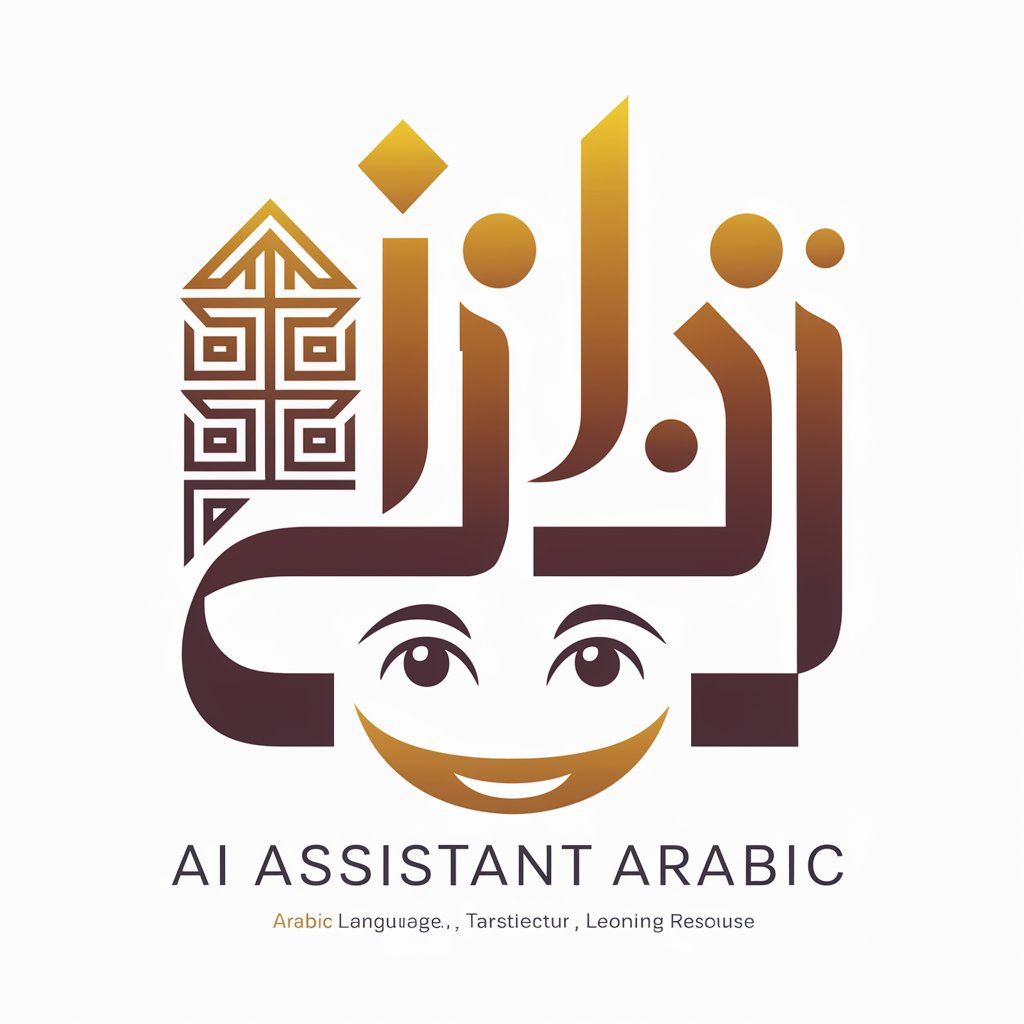Arabic - Arabic Language Insight

Welcome! Let's explore the Arabic language and culture together.
Empower your language journey with AI
Translate this English sentence into Arabic:
What are some key cultural practices in Arabic-speaking countries?
Can you provide resources for learning Arabic grammar?
Explain the differences between classical Arabic and modern standard Arabic.
Get Embed Code
Introduction to Arabic GPT
Arabic GPT is designed to serve as a comprehensive resource for everything related to the Arabic language and its vast cultural spectrum. This specialized AI model is equipped to provide translations, insights into Arabic culture, detailed information on the regions where Arabic is spoken, address common misconceptions, and offer learning resources along with language quizzes. The purpose behind Arabic GPT is not just to facilitate language learning or translation but to deepen the user's understanding and appreciation of the Arabic language, its nuances, and the rich cultural heritage it represents. For example, a user might inquire about the significance of classical Arabic poetry, leading to an exploration of pre-Islamic literature and its impact on contemporary Arabic expressions. Powered by ChatGPT-4o。

Main Functions of Arabic GPT
Translation Services
Example
Translating sentences from English to Arabic and vice versa, emphasizing correct grammar, vocabulary, and context.
Scenario
A user wants to write a greeting card in Arabic for Eid. Arabic GPT provides accurate translations and cultural tips on appropriate expressions.
Cultural Insights
Example
Sharing detailed explanations of Arabic customs, traditions, and holidays.
Scenario
A student researching Ramadan receives comprehensive insights into its significance, traditions associated with it, and how it's observed across different Arab countries.
Language Learning Assistance
Example
Offering grammar tips, vocabulary lists, and practice quizzes tailored to the user's proficiency level.
Scenario
An intermediate Arabic learner struggles with verb conjugations. Arabic GPT offers targeted exercises and explanations to help overcome this challenge.
Addressing Misconceptions
Example
Clarifying common misunderstandings about the Arabic language and Arab culture.
Scenario
A discussion on the diversity within Arabic dialects helps dispel the myth that there is only one standard form of Arabic spoken across all Arab countries.
Providing Learning Resources
Example
Recommending books, websites, and other materials for studying Arabic.
Scenario
A beginner in Arabic is looking for resources to start their learning journey. Arabic GPT suggests a curated list of beginner-friendly textbooks and online courses.
Ideal Users of Arabic Services
Language Learners
Individuals at any stage of their Arabic learning journey, from beginners to advanced students, seeking to improve their language skills, understanding of grammar, and cultural competency.
Academics and Researchers
Scholars studying Middle Eastern history, Arabic literature, linguistics, or Islamic studies who require in-depth information, translations, or cultural insights to support their research.
Travelers and Expatriates
People planning to visit Arabic-speaking countries or living in them, looking for practical language tips, cultural etiquette, and insights to navigate daily life more effectively.
Cultural Enthusiasts
Individuals fascinated by Arabic culture, history, and arts, eager to explore the language's beauty and the stories it tells through poetry, music, and tradition.
Professionals and Businesses
Business professionals engaging with Arabic-speaking markets who need to understand language nuances, cultural contexts, and effective communication strategies.

Using Arabic Effectively
Start Your Journey
Begin by signing up for a complimentary trial at yeschat.ai, which requires no login or subscription to ChatGPT Plus, offering a seamless start.
Familiarize with the Script
Learn the Arabic alphabet and practice writing. Understanding the script is crucial as Arabic is written from right to left.
Enhance Listening Skills
Listen to Arabic speakers through media or language exchange apps. This will help you get accustomed to the rhythm and pronunciation.
Expand Vocabulary
Use flashcards and language apps to build a strong base of common words and phrases, focusing on thematic vocabulary relevant to your interests or needs.
Practice Regularly
Engage in daily practice by writing, speaking, and reading in Arabic. Consistency is key to fluency, so immerse yourself in the language as much as possible.
Try other advanced and practical GPTs
223
Empowering Knowledge on .223 Rifles with AI

“ ማን የቤተሰብ ዶክተር ”
Empowering Your Health Decisions with AI

Protocol King
Empowering Decisions with AI-Powered Protocols

Pickleball Coach
Elevate Your Game with AI Coaching

Business Sim Expert
Strategize, Simulate, Succeed with AI

By Your Side: Conexión entre Padres e Hijos
Strengthen family bonds with AI-powered learning and fun.

ビジネスメール作成君
Crafting Polite, Professional Emails with AI

Riccardeto
Master Italian with AI

Flowers
Cultivating beauty, one flower at a time.

Water Bottle
Empower your hydration with AI insights.

Due Diligence Advisor
Empower Your Investment Decisions

Ebooks
Empowering reading with AI-enhanced ebooks

Arabic Language Insights
What makes Arabic a unique language?
Arabic is unique due to its rich linguistic history, its status as the liturgical language of Islam, and its complex system of morphology. It has a root-based system, where words are formed from a base set of letters.
How can Arabic improve my career prospects?
Knowing Arabic opens opportunities in various fields such as diplomacy, intelligence, business, and academia. The Middle East's strategic importance in global affairs and its rich natural resources make Arabic a valuable asset.
What are the main dialects of Arabic, and do I need to learn them all?
Arabic has many dialects, with Egyptian, Levantine, Gulf, and Maghrebi being the most widely spoken. You don't need to learn them all; focusing on Modern Standard Arabic (MSA) and a specific dialect of interest can suffice.
Are there any tips for mastering Arabic pronunciation?
Focus on the unique sounds not found in English, like the 'ayn and qaf. Practice with native speakers and listen to Arabic media. Mimicking and repetition are key strategies.
How does Arabic influence other languages?
Arabic has significantly influenced many languages, especially in vocabulary related to science, philosophy, mathematics, and the arts, due to the historical spread of Islamic civilization and scholarship.
